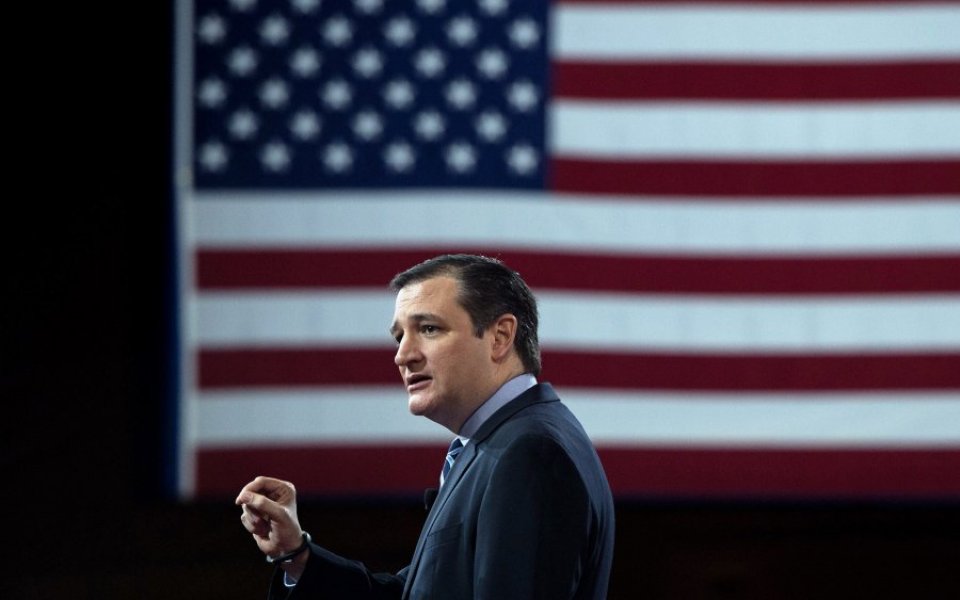Meet Ted Cruz: The dark horse Republican who could pip Donald Trump to the nomination

Senator Ted Cruz is the most interesting candidate in the US presidential race right now. As a darling of the Tea Party, in 2012, he swept into the Senate, representing Texas, having campaigned on deeply conservative principles and policies. At the time, many dismissed him as a rabble-rouser who would wind up as a less successful version of George W Bush. Now, not only is he leading in the polls in Iowa, but he has also beat out senator Marco Rubio as the dark horse of the race thus far.
Cruz has been criticised for having some of the most conservative views in the contest. Though his conservatism is rooted in a strict interpretation of the US constitution – not the modern populism that has propelled candidates like former senator Rick Santorum and former governor Mike Huckabee to call for heavy defence spending and further government interference – his extreme views on abortion and the death penalty have many questioning if he can appeal to moderate Republicans, let alone independents.
Despite these views, however, Cruz has found support in some of the most unlikely places. Alan Dershowitz, the famous liberal law professor at Harvard, said of Cruz: “One of the sharpest students I had… I’ve had 10,000 students over my 50 years at Harvard… he has to qualify among the brightest.”
During his career, Cruz has worked as both a law clerk to Supreme Court justice William Rehnquist, as well as the solicitor general of Texas; a job which led him to argue several cases in front of the Supreme Court himself. His experience easily pegs him as the most knowledgeable candidate on state and individual rights, a helpful title to hold when vying for conservative votes.
With a few obvious exceptions – including his anti-immigration stance and support for building a wall at the Mexican border – many of Cruz’s policy proposals adopt progressive conservatism, meaning they rest more on evidence than ideology. He strays from the pack when the facts are clear, evidenced just this week when, according to the Wall Street Journal, he became “the first leading presidential candidate to oppose the federal Renewable Fuel Standard” – a farming handout that is protected heavily by the agricultural lobby.
When the TV debates kicked off, many thought Rubio was the one to watch: moderate, charismatic, with both “grassroots” and “establishment” likability. But Cruz has come out far ahead in Iowa and, if the polls are to be believed, he will be determined the winner in that state’s caucus in just a matter of weeks.
My bet is that Rubio still has a small edge on Cruz to secure the Republican nomination. While the Iowa caucuses play a pivotal role for under-performing candidates, for whom it is the last chance to stay in the race, its voters are very socially conservative and have failed to choose the candidate that resonates most with the rest of the party in recent years.
But this is still anyone’s race, and Cruz’s prospects are looking up. If he wins Iowa, the feat will deliver a crushing blow to Donald Trump and potentially trigger the billionaire’s downfall. Trump’s main pull is that he’s a “winner” – when he’s not winning anymore, his campaign will inevitably decline.
When it does, someone will reap the lost votes. Six months ago, Cruz seemed like an after-thought; today, he may be peaking at just the right moment.